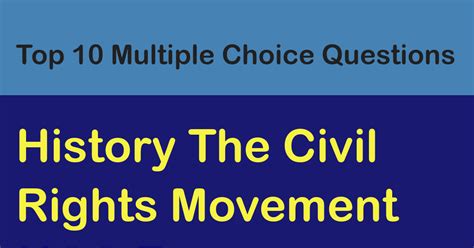Essential Provisions and Impact
The Civil Rights Act of 1964 stands as a cornerstone of American history, abolishing discrimination based on race, color, religion, sex, or national origin in various aspects of society. This comprehensive legislation consists of several key provisions that have profoundly impacted the lives of millions:

-
Title I: Voting Rights: Prohibited the use of literacy tests and other discriminatory practices to restrict voting rights.
-
Title II: Public Accommodations: Outlaws segregation and discrimination in public establishments, such as hotels, restaurants, and transportation facilities.
-
Title III: Public Facilities: Ensures equal access to government-funded facilities, including schools, hospitals, and libraries.
-
Title IV: School Desegregation: Empowers the federal government to desegregate schools through lawsuits and court orders.
-
Title V: Civil Rights Commission: Establishes the U.S. Civil Rights Commission to investigate and report on civil rights violations.
-
Title VI: Federal Programs: Prohibits discrimination in any federally funded program or activity.
-
Title VII: Equal Employment Opportunity: Prohibits employers from discriminating in hiring, firing, promotion, or other employment-related practices based on race, color, religion, sex, or national origin.
Benefits and Legacy
The Civil Rights Act has transformed American society, breaking down barriers of discrimination and promoting equality for all citizens. Its impact is evident in:
-
Increased Voter Participation: African Americans and other minority groups have witnessed a significant increase in voter registration and turnout since the passage of the Voting Rights Act.
-
Desegregated Schools and Public Spaces: Schools, restaurants, and other public spaces are now more integrated, providing equal opportunities for all.
-
Growth in Employment Opportunities: The ban on employment discrimination has opened doors for minority groups in various industries, leading to higher rates of employment and economic empowerment.
-
Cultural Transformation: The Civil Rights Act has fostered a greater sense of inclusivity and respect for diversity in American culture.
Timeline of Key Events
-
1954: Brown v. Board of Education rules school segregation unconstitutional.
-
1955-1956: Montgomery Bus Boycott sparks the Civil Rights Movement.
-
1963: March on Washington for Jobs and Freedom highlights racial inequality.
-
1964: Civil Rights Act passes Congress and is signed into law by President Lyndon B. Johnson.
-
1965: Voting Rights Act strengthens voting rights protections.
Quizlet Decks for Learning and Review
Enhance your understanding of the Civil Rights Act and its implications through the following Quizlet decks:
-
Key Provisions and Impact: https://quizlet.com/studysets/civil-rights-act-key-provisions-and-impact
-
Timeline of Events: https://quizlet.com/studysets/civil-rights-act-timeline-of-events
-
Supreme Court Cases: https://quizlet.com/studysets/civil-rights-act-supreme-court-cases
-
Impact and Legacy: https://quizlet.com/studysets/civil-rights-act-impact-and-legacy
Frequently Asked Questions
1. What was the primary goal of the Civil Rights Act?
To eliminate discrimination based on race, color, religion, sex, or national origin in various aspects of society.
2. Which title of the Act prohibits discrimination in employment?
Title VII: Equal Employment Opportunity
3. What impact did the Voting Rights Act have on voter participation?
It led to a significant increase in voter registration and turnout among African Americans and other minority groups.
4. True or False: The Civil Rights Act does not cover discrimination based on sex.
False. Title VII of the Act prohibits discrimination based on sex in employment.
5. What agency was created by the Civil Rights Act to investigate and report on civil rights violations?
U.S. Civil Rights Commission
6. What was the catalyst for the Civil Rights Act?
The Civil Rights Movement, which highlighted racial inequality and demanded equal rights for all Americans.
7. How many titles does the Civil Rights Act have?
7
8. True or False: The Civil Rights Act has no impact on modern society.
False. The Act continues to play a vital role in protecting the civil rights of all Americans.
